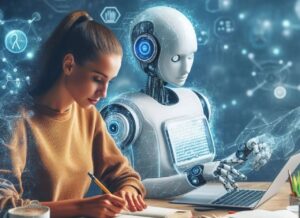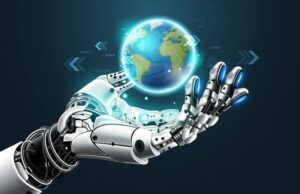Artificial Intelligence, also known as AI, has been a buzzword for the past decade or so in our society. All this talk and news of how AI is changing our world, how is it used in today’s society, its effects on education, are all essential in linking AI and our society. But to define AI first, according to Heaven (2024), “AI is a catchall term for a set of technologies that make computers do things that are thought to require intelligence when done by people. Think of recognizing faces, understanding speech, driving cars, writing sentences, answering questions, creating pictures. But even that definition contains multitudes.” Another definition by Stryker and Kavlakoglu (2024) explains that “AI is technology that enables computers and machines to simulate human learning, comprehension, problem solving, decision making, creativity and autonomy.” In the field of education, AI refers to the use of computer systems that can perform tasks typically requiring human intelligence to enhance learning experiences, streamline administrative processes, and support educators.

From the definitions of AI in the preceding paragraph, it can be deduced that AI can be defined in a variety of manners and utilized in many ways. It is actually being used nowadays, though, depending on the part of the world and culture, it may or may not be used widely. This can be true for how AI is presently used in education. In my personal experience, I am not using generative AI at work, because where I work now, our company has its own set of propriety software. And as a former teacher (2010-2023), I avoided using AI to check my students’ work because I concentrated more on how they wrote essays and how I understood their essays, and some of my exams were objective (multiple choice) — I previously handled university students (usually freshmen). I am a PhD student now, and I do not use AI at all because I just follow the APA format when doing research and citing the work of others.
AI obviously has its advantages and disadvantages in society. Timbo (2023) mentioned its pros and cons. Its advantages include 1.) AI reduces human errors, 2.) provides 24/7 support, and 3.) automate repetitive tasks. Its disadvantages include 1.) AI does not understand the human experience, 2.) may lead to higher unemployment rates, and 3.) costly to create. It is true that for corporations, especially large corporations, AI can be able to streamline business operations, thus maximizing profit while minimizing costs. However, more people may be unemployed in the future because of AI and robotics, which is obviously a disadvantage to the employees affected. In education, AI programs and software can be used by students for cheating — not writing their own essays but by making certain software do it for them.

It is up to us, as human beings, to use AI responsibly. As employees, employers, teachers, and as students, we should use AI as a tool properly. Even though we are experiencing the rise of it and its inevitability to be included and utilized more and more in our daily lives, we should not let AI ruin our lives, rather, we must use it positively for us to have more convenient lives. By using AI in the proper manner, the world will be more productive, without having to affect human lives negatively.
Well done Raul, your post thoughtfully demonstrates the role of AI in society and education. I resonate with your identification of its advantages, like reducing errors and automating tasks, and its challenges, such as ethical concerns and potential misuse. Your personal experiences add depth and emphasizes the importance of human connection in teaching and learning.As you summed up, AI must be used responsibly, ensuring it enhances our lives rather than undermining it.